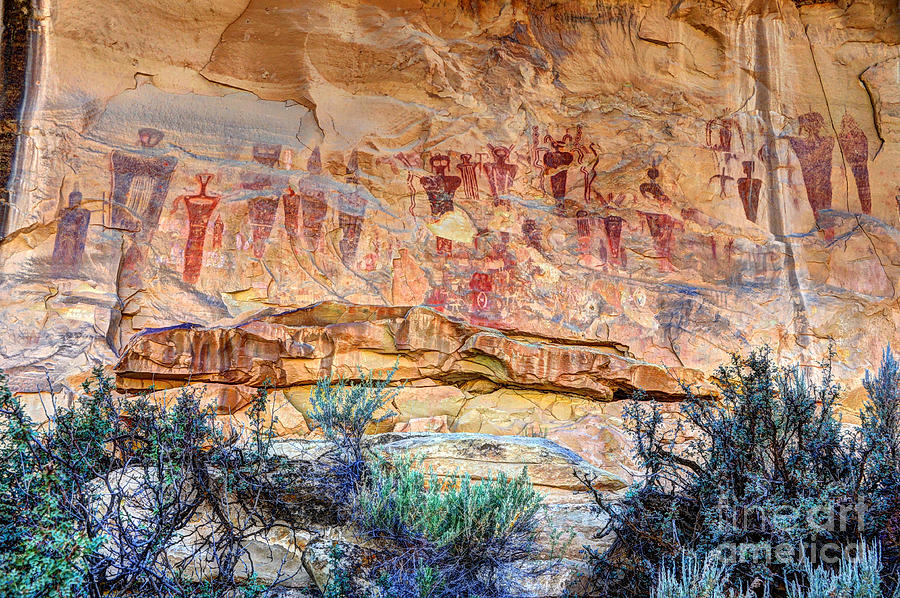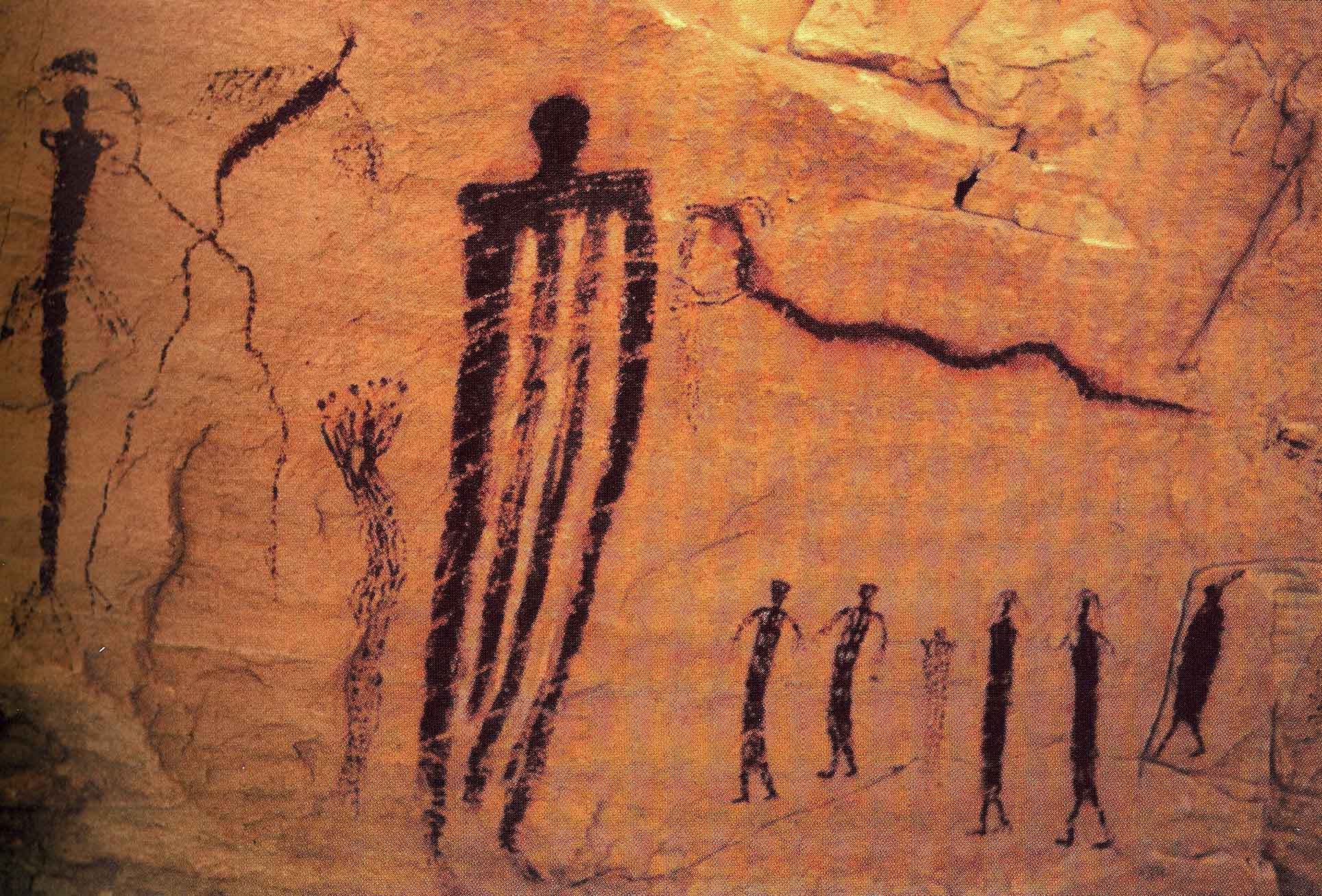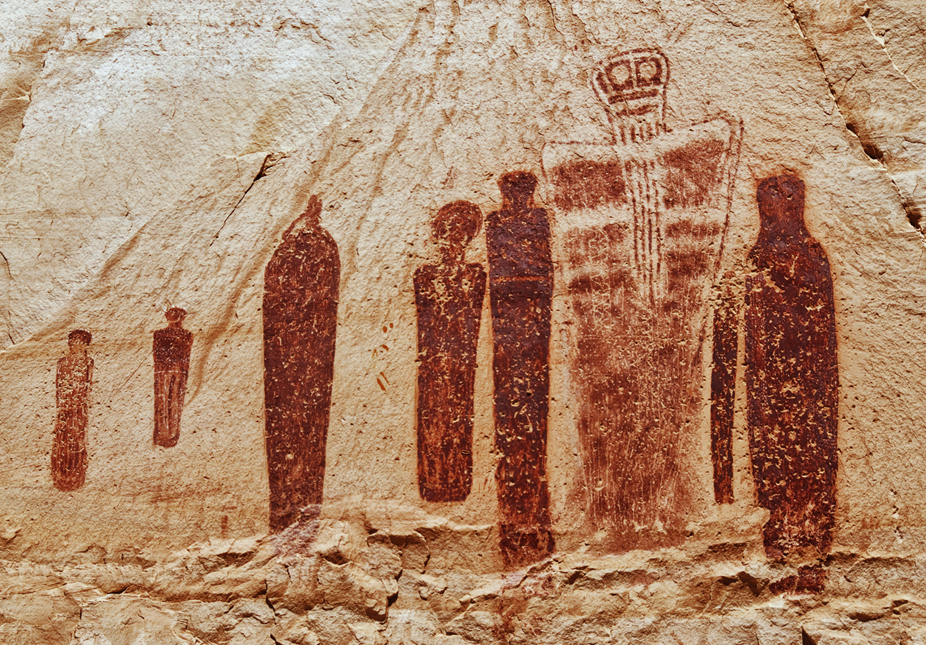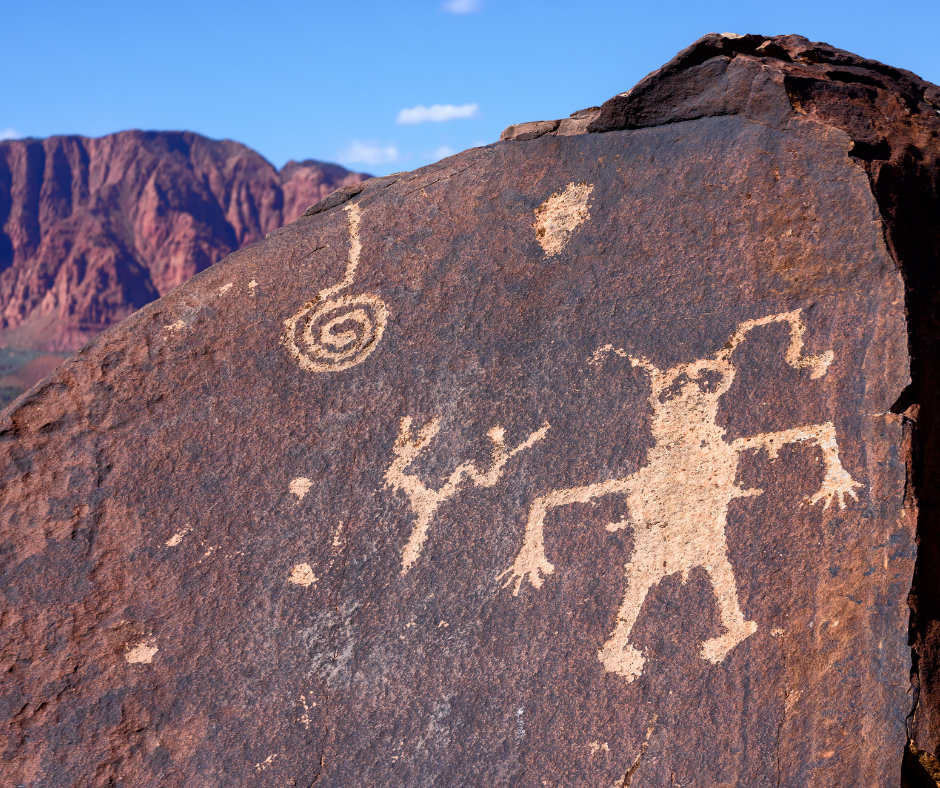The mystery of the 8,000-year-old rock paintings of Sego Canyon

Sego Canyon is located in Utah, USA, and for several millennia, Native Americans have painted it with rather strange images.
The most ancient petroglyphs date back 8 thousand years, and the tribe that created them does not even have a personal name in history, they are simply called “archaic peoples”.

Some of Sego’s drawings are fairly common, representing people with farm animals or scenes related to hunting, but about 80 figures are among those that ufologists consider evidence of paleocontacts. This theory states that intelligent extraterrestrial beings (sometimes called ancient astronauts) visited Earth in the distant past, influencing human culture, technology, or religion.

The ancients drew large figures without limbs or with something like wings, with huge eyes or no eyes at all, with horns, crests or strange “antennas on their heads.”
Historians and archaeologists have long wondered what these frightening figures could represent and generally agree that these could be images of creatures from the world of spirits or gods that shamans saw during their sessions.

“With the help of spirit guides, patron deities, divine or semi-divine beings, shaman travelers between the worlds contact ancestral spirits and supernatural forces in the interests of healing, fertility, divination, successful hunting, feats of arms and weather control,” says archaeologist Polly Shafsma , a major specialist in Indian rock paintings.

However, this is only one of the theories; officially there is still no single version of what these petroglyphs might be.
After the “archaic peoples” in these places in the period of 600-1250 AD, the “Fremont River tribe” lived, which also created very strange petroglyphs with triangular figures in an incomprehensible ornament.

After them, the Ute tribe lived here until the end of the 19th century, and their rock paintings can be called the “poorest” in terms of “unusualness”, but they also have such mysterious things in their drawings as huge circles, it’s not clear what they meant.

Proponents of the paleocontact theory suggest that the strange figures in the cave paintings of Sego Canyon depict aliens who once visited the Earth.
They point to large, sunken eyes and triangular-shaped heads, indicating that the figures were definitely not human.

And that extraterrestrials have been visiting these places for millennia and are associated both with the culture of the “archaic peoples” and with the tribe of the Fremont River and the Ute, although much less often with the latter.

As evidence, they cite the fact that although shamanism was very widespread among the Indian tribes, the strange figures of the Sego Canyon are almost a unique phenomenon, other tribes did not draw anything like this on the rocks.